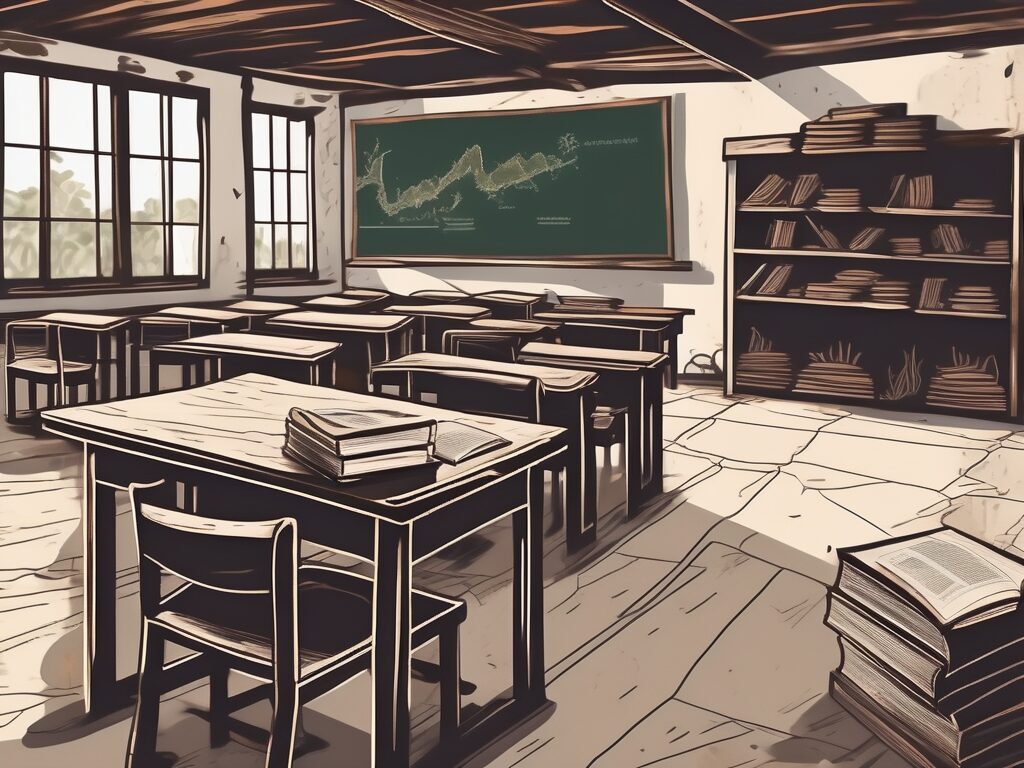Top 7 Challenges in Cambodia’s Education System by 2025
Cambodia, a nation in Southeast Asia celebrated for its rich cultural heritage and stunning landscapes, is actively working to enhance its education system. Despite notable advancements, several critical challenges persist that must be addressed to ensure equitable access to quality education for all students. This guide will explore the primary obstacles faced in teaching and learning within Cambodia, providing insights for international educators and consultants.
1. Infrastructure and Resource Deficiencies
The inadequacy of educational infrastructure and resources remains a significant barrier in Cambodia. Many educational institutions, particularly in rural regions, are devoid of essential facilities, including:
- Clean water supply
- Reliable electricity
- Functional sanitation facilities
This situation mirrors challenges faced in various developing nations, where infrastructural deficits hinder the delivery of quality education. Furthermore, the scarcity of learning materials, such as textbooks and digital resources, severely limits the educational experience, paralleling conditions observed in numerous African countries.
2. Teacher Quality and Professional Development
The caliber of teaching personnel in Cambodia presents another pressing challenge. A considerable number of educators lack the requisite training and pedagogical skills necessary for effective instruction. This issue is prevalent in many developing regions, where teacher training programs are often insufficient. Key factors include:
- Low remuneration and inadequate working conditions
- Limited opportunities for professional development
Such circumstances contribute to diminished motivation among teachers, adversely affecting educational quality.
3. Outdated Curriculum and Instructional Methods
The Cambodian educational curriculum frequently fails to align with contemporary educational demands. Predominantly focused on rote memorization, it neglects the cultivation of critical thinking and problem-solving abilities. This trend is similarly observed in various Asian countries. Additionally, the curriculum often lacks integration of modern subjects, such as:
- Information technology
- Environmental education
This disconnect between curriculum content and current global needs is a common issue in many developing nations.
4. Language Proficiency Challenges
Language barriers significantly impede educational progress in Cambodia. Many students encounter difficulties with English, which is frequently the medium of instruction in higher education. This challenge is akin to that faced by numerous non-English speaking countries. Contributing factors include:
- Insufficient resources for language acquisition, such as textbooks and trained instructors
- Limited exposure to English outside the classroom
These issues exacerbate the challenges of achieving proficiency in a global lingua franca.
5. Limited Access to Education
Access to quality education remains a critical concern in Cambodia. A significant number of children, particularly those from economically disadvantaged backgrounds and rural locales, are deprived of educational opportunities. This situation is reflective of broader trends in many developing countries, where socio-economic factors severely restrict access. Additionally, gender disparities persist, with many girls discontinuing their education due to:
- Societal pressures
- Early marriage
Such disparities highlight the need for targeted interventions to promote gender equity in education.
6. Socio-Cultural Influences on Education
Socio-cultural factors significantly influence educational outcomes in Cambodia. Traditional beliefs and practices can affect parental attitudes towards education, particularly for girls. Addressing these cultural barriers is essential for fostering an inclusive educational environment.
7. Need for Comprehensive Educational Reform
To address these multifaceted challenges, Cambodia requires a comprehensive approach to educational reform. This includes:
- Investment in infrastructure and resources
- Enhancement of teacher training programs
- Curriculum modernization to meet global standards
- Promotion of language learning resources
- Strategies to improve access and equity in education
By learning from the experiences of other nations and implementing effective strategies, Cambodia can navigate these challenges and work towards providing quality education for all its citizens.
Conclusion
While Cambodia has made commendable progress in its educational landscape, significant challenges remain. Addressing issues related to infrastructure, teacher quality, curriculum relevance, language barriers, access to education, socio-cultural influences, and the need for comprehensive reform is imperative. By fostering collaboration among government entities, educational institutions, and communities, Cambodia can pave the way for a brighter future for its youth.
Enhance Your Teaching Career with IPGCE
Understanding the complexities of Cambodia’s educational landscape is crucial for educators seeking to make a meaningful impact. For those looking to elevate their qualifications and connect with a global professional community, the International Postgraduate Certificate in Education (IPGCE) offers a pathway to success. Designed to enhance teaching credentials, IPGCE provides educators with insights into global education systems, significantly increasing adaptability in diverse teaching environments. Embrace the opportunity for professional growth and a more rewarding career with flexible online study options. Join the UK’s leading Teacher Training Course today and contribute to transforming education in Cambodia and beyond.

